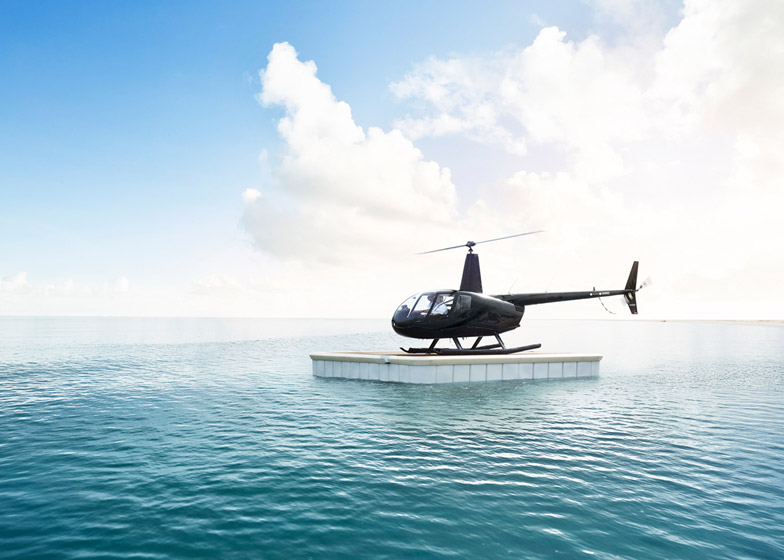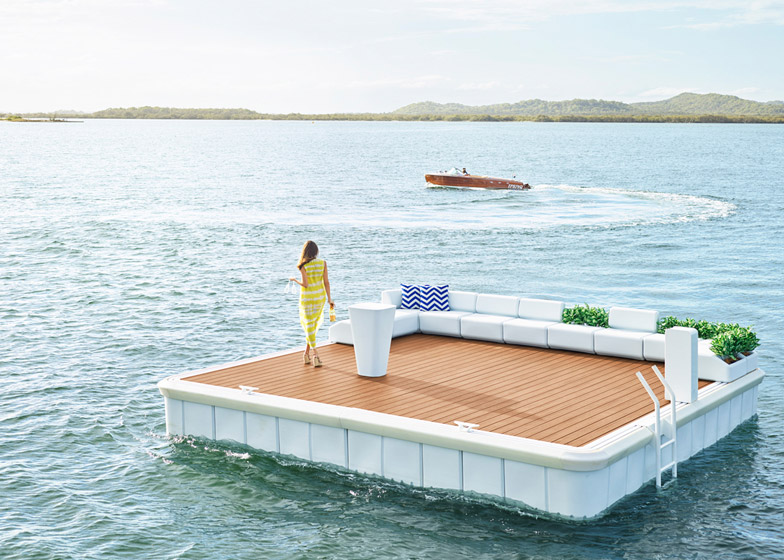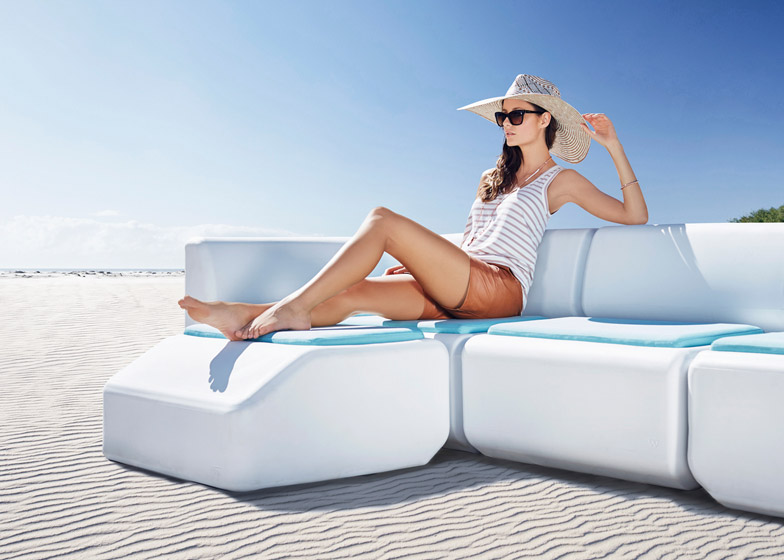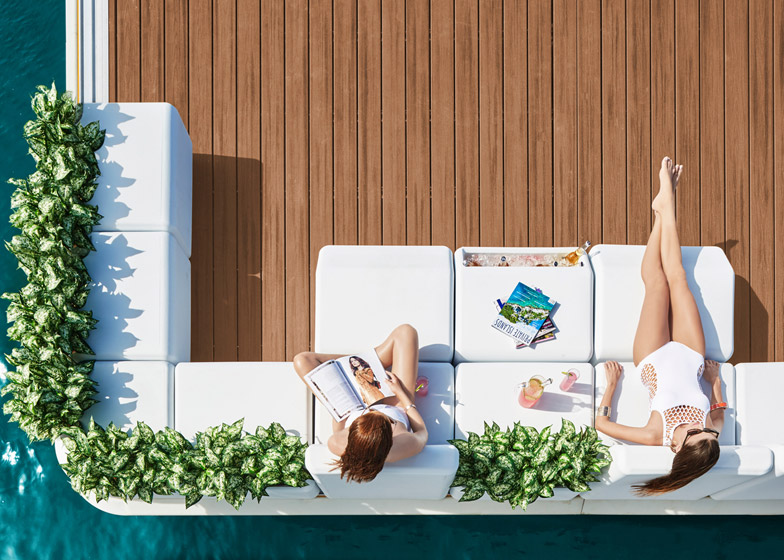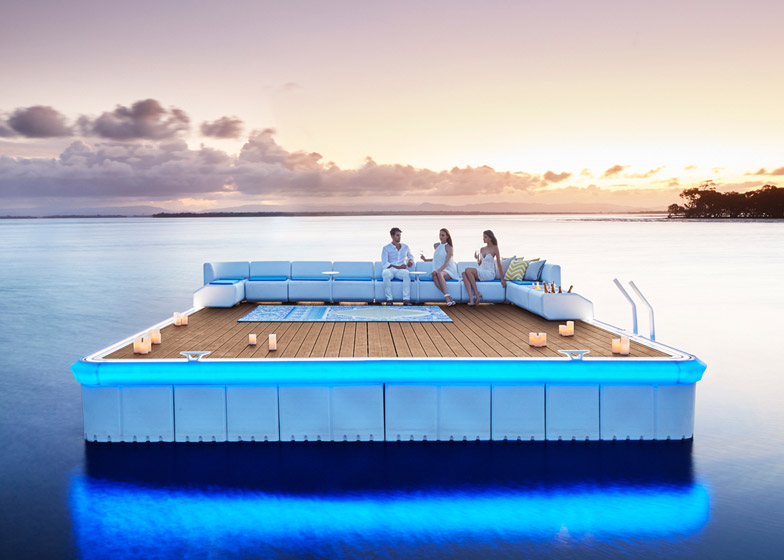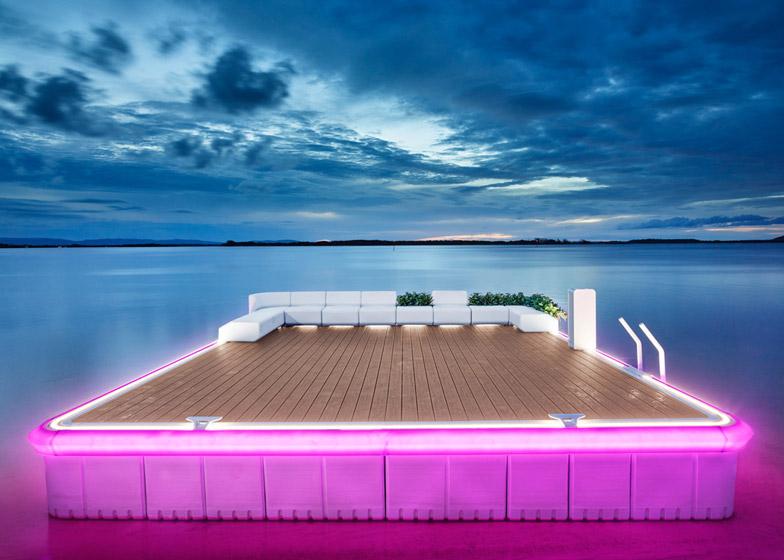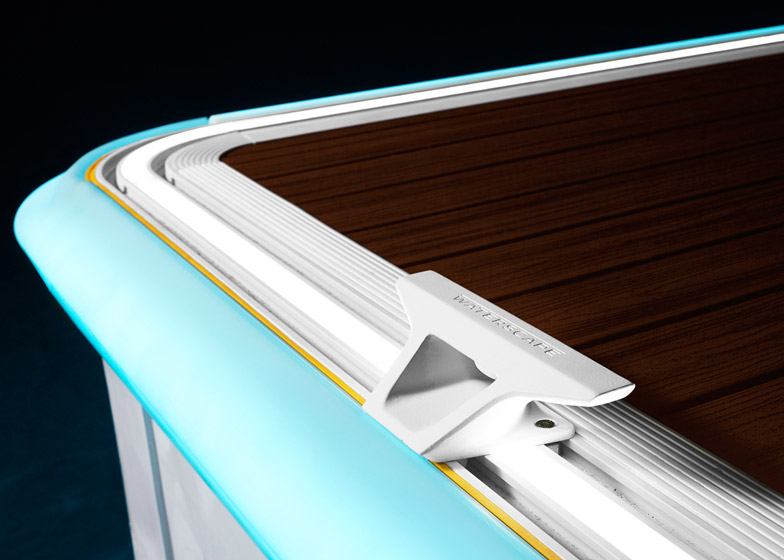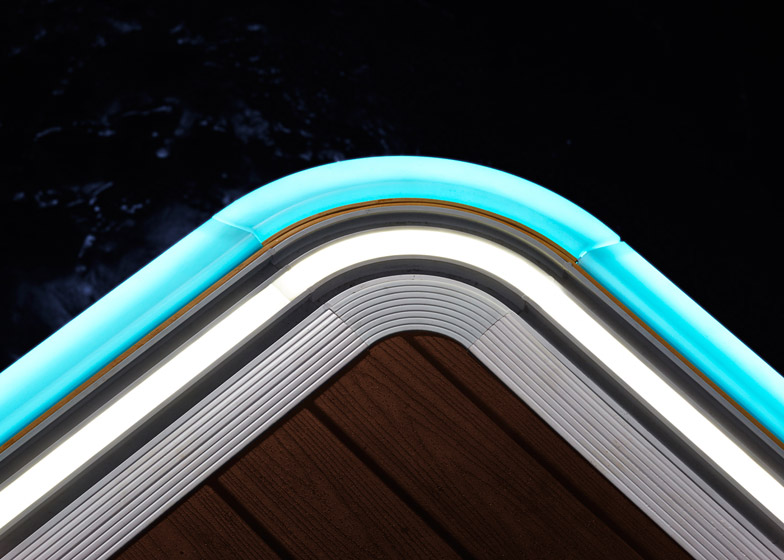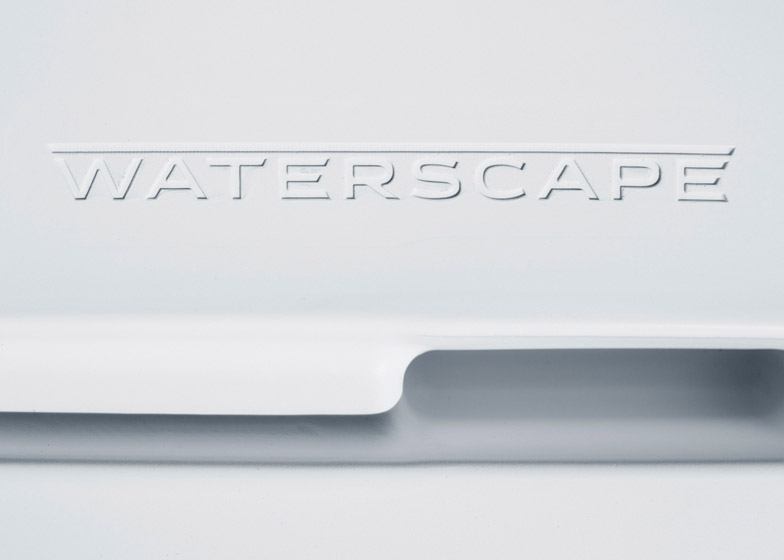Australia-based designer Alexander Lotersztain has created a floating platform system that can be customised with clip-on lighting, furniture, and docking facilities – and can even be used as a helipad (+ slideshow).
Shortlisted for the Good Design Australia Awards, Waterscape was designed by Lotersztain's multidisciplinary studio Derlot for Superior Group – a company that specialises in the construction of jetties, pontoons and industrial flotation products.
Waterscape was conceived as the first domestic product line by Superior, and is intended to act as a "beacon from the water to the front door of a resort or home".
"Waterscape is the extension of your home onto your own, exclusive waterfront space," said the designer. "It is a place where friends and family can meet. It's a communal place. It's a warm place."
"Waterscape is design-led," said Lotersztain. "It's the first product of its kind that responds to what the customer wants and needs in a waterfront lifestyle product. We have created something so alluring and so desirable that, in a moment, the user is transported to a place of peace."
The modular design can be adapted using one-metre buoyancy compartments to create a wide variety of shapes and sizes.
Once installed, the buoyancy levels can be adjusted to ensure the platform remains level, and the structure is attached to the seabed using anchor piles to stop it drifting away.
"We spent the most part of 1.5 years working only on the modular structure, or what I call the 'base plate'," Lotersztain told Dezeen.
"A floating structure is exposed to constant movement in a marine environment, currents, tides, wind and mooring, all of which had to be tested with computer-modelled simulations and all the structural elements refined to get a balanced result between flexibility and stiffness, visual lightness and structural integrity."
The platform features a translucent fender created by extruding a copolymer plastic material, protecting the structure from bumps when a boat is moored to it.
An optional strip of LED lighting can be added around the edge. This emits a neon-like glow, and is activated by a remote control.
"It was both for aesthetic reasons but also for safety as its surrounds the entire structure and delineates the edge, and to create a beacon to your house when you approaching from the water with a boat," explained the designer. "Also LEDs are used in superyachts, so it relates to the industry we are in."
An extruded rim around the edge also allows accessories to be clipped on according to the user's requirements. These include seating, planters, umbrellas, ice boxes, power boxes for running electronic equipment, ladders for climbing on and off, and mooring cleats – double-ended protrusions for secure attachment of ropes and chains. The decking material and optional balustrades can be also be customised.
All of the accessories and many of the modular structural components are created by casting weather-resistant plastics and metals in aluminium moulds.
"The predominant materials in Waterscape are well known for their longevity in a marine environment," said a statement from Derlot. "They are low maintenance and do not require antifouling."
According to the company, all of the components can be disassembled and recycled.

